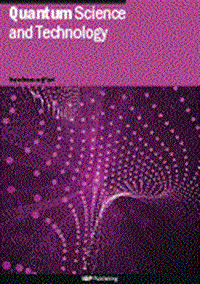利用量子统计来增强热机
IF 5
2区 物理与天体物理
Q1 PHYSICS, MULTIDISCIPLINARY
引用次数: 0
摘要
设计量子热器件的一个关键焦点是与经典器件相比,可以从真正的量子效应中获得潜在的优势。最近泡利发动机的实验实现(Koch等人2023 Nature621 723) -通过改变粒子统计来提取能量,作为传统热源的替代品-开辟了新的研究途径,量子统计可以被认为是一种热力学资源。在这项工作中,我们提出了混合量子热机,它可以利用额外的冲程来改变循环中玻色子和费米子描述之间的单粒子统计。为了实现这一点,我们考虑了一维利布-利尼格气体,其中s波相互作用可以在非相互作用和硬核极限之间进行调谐,这分别由玻色子和费米子统计描述。我们表明,在准静态极限的类奥托循环中,通过适当地选择在哪里实现这些统计冲程,与全玻色子或全费米子发动机相比,效率和功输出可以显着提高。此外,在退化状态下,由于统计冲程引起的不同的热和功贡献之间的相互作用,我们的发动机可以在卡诺效率下运行。最后,我们强调了我们的热力学循环如何实现其他热操作,如冰箱,有望在广泛的温度范围内实现类似的统计增强。本文章由计算机程序翻译,如有差异,请以英文原文为准。
Leveraging quantum statistics to enhance heat engines
A key focus of designing quantum thermal devices is the potential advantage that can be gleaned from genuine quantum effects when compared to classical devices. The recent experimental realization of the Pauli engine (Koch et al 2023 Nature621 723)—where energy is extracted via changes in particle statistics as an alternative to conventional heat sources—has opened new avenues of research where quantum statistics can be considered as a thermodynamic resource. In this work we propose hybrid quantum heat engines which can utilize additional strokes that change the single particle statistics between bosonic and fermionic descriptions during the cycle. To accomplish this we consider the 1D Lieb–Liniger gas, in which the s-wave interactions can be tuned between the non-interacting and the hard-core limit, which are described by bosonic and fermionic statistics respectively. We show that by suitably choosing where to implement these statistical strokes during an Otto-like cycle in the quasi-static limit, the efficiency and work output can be significantly enhanced when compared to fully bosonic or fully fermionic engines. Furthermore, in the degenerate regime our engine can operate at the Carnot efficiency, due to the interplay between the different contributions of heat and work induced by the statistical strokes. Finally, we highlight how our thermodynamic cycles can realize other thermal operations, such as refrigerators, promising similar statistical enhancements for a wide range of temperatures.
求助全文
通过发布文献求助,成功后即可免费获取论文全文。
去求助
来源期刊

Quantum Science and Technology
Materials Science-Materials Science (miscellaneous)
CiteScore
11.20
自引率
3.00%
发文量
133
期刊介绍:
Driven by advances in technology and experimental capability, the last decade has seen the emergence of quantum technology: a new praxis for controlling the quantum world. It is now possible to engineer complex, multi-component systems that merge the once distinct fields of quantum optics and condensed matter physics.
Quantum Science and Technology is a new multidisciplinary, electronic-only journal, devoted to publishing research of the highest quality and impact covering theoretical and experimental advances in the fundamental science and application of all quantum-enabled technologies.
 求助内容:
求助内容: 应助结果提醒方式:
应助结果提醒方式:


